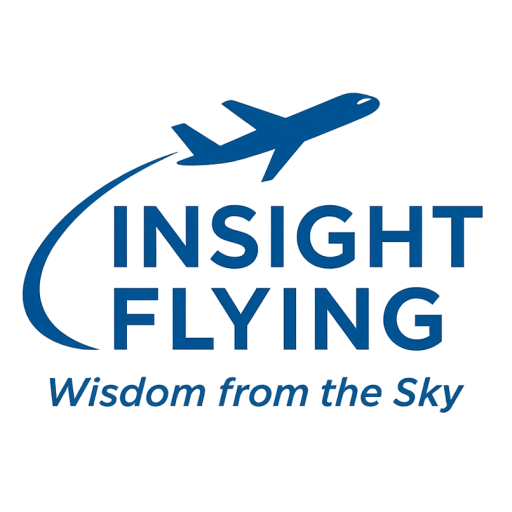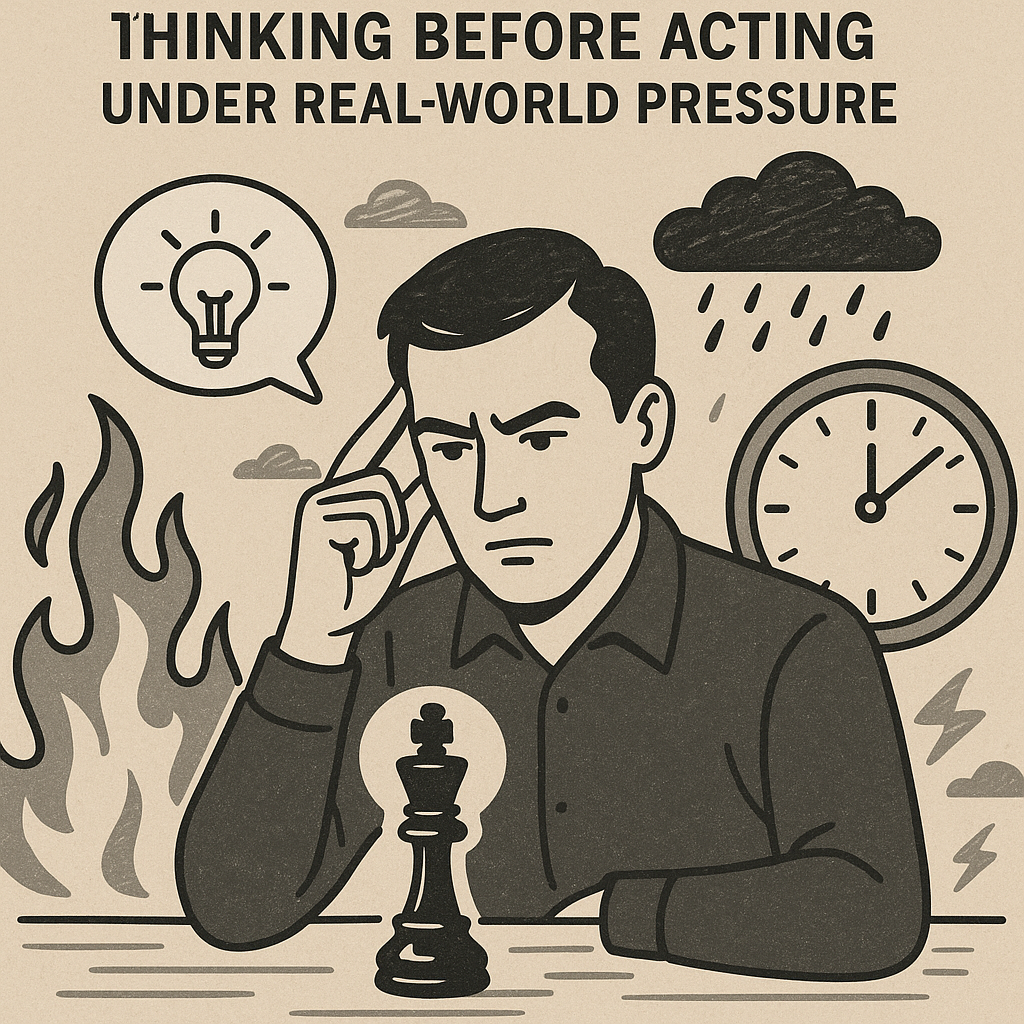การสอบสัมภาษณ์นักบิน ไม่ได้มีแค่การพูดคุยทั่วไปเท่านั้นครับ แต่บ่อยครั้งกรรมการจะใช้เทคนิคการ “ทดสอบระหว่างการสัมภาษณ์” (Interview Test) เพื่อค้นหาทั้งจุดแข็งและจุดอ่อนของผู้สมัคร ว่าเป็นไปตามที่คะแนนข้อเขียนและข้อมูลในแฟ้มประวัติระบุไว้หรือไม่
สิ่งที่กรรมการพิจารณาก่อนสัมภาษณ์
ก่อนที่จะเรียกผู้สมัครเข้ามาในห้องสัมภาษณ์ กรรมการสอบจะมีการแลกเปลี่ยนข้อมูลกันสั้น ๆ เช่น
- ผลคะแนนข้อเขียนจากรอบที่ผ่านมา
- ประวัติการศึกษาและการทำงาน
- คะแนนเฉลี่ยรายวิชาและคะแนนสอบวัดระดับภาษาอังกฤษ
- คุณสมบัติด้านอื่น ๆ เช่น ใบอนุญาตการบิน ประสบการณ์การบิน หรือกิจกรรมพิเศษ
ข้อมูลเหล่านี้เป็น “จุดตั้งต้น” ที่จะกำหนดแนวทางการถามคำถามหรือการทดสอบเพิ่มเติม
การสังเกตพฤติกรรม
นอกจากคำตอบแล้ว สิ่งที่กรรมการให้ความสำคัญคือ บุคลิกภาพและการวางตัว เช่น
- การแต่งกายและความสุภาพเรียบร้อย
- การควบคุมอารมณ์และความตื่นเต้น
- วิธีการสื่อสารและการเลือกใช้ภาษา
- การรักษามารยาทและการเคารพผู้อื่นในห้องสอบ
รายละเอียดเหล่านี้สะท้อนว่า ผู้สมัครมี “ความเป็นมืออาชีพ” (Professionalism) มากน้อยเพียงใด
ลักษณะการทดสอบระหว่างสัมภาษณ์
การสอบสัมภาษณ์นักบินมักจะเป็นการพูดคุย แต่บางครั้งอาจถูกสอดแทรกด้วยการทดสอบสั้น ๆ เช่น
- การทดสอบความรู้เชิงเทคนิค (Technical Question)
เช่น คำถามเกี่ยวกับหลักการบิน เครื่องยนต์ หรือกฎการบิน เพื่อยืนยันว่าคะแนนจากข้อเขียนนั้นมาจากความเข้าใจจริง ไม่ใช่การเดา - การทดสอบในจุดที่คะแนนต่ำ (Weakness Check)
หากกรรมการเห็นว่าผู้สมัครได้คะแนนน้อยในหัวข้อใด อาจเลือกถามซ้ำในประเด็นนั้น เพื่อดูว่าผู้สมัครมีศักยภาพพอจะพัฒนา หรือเป็นข้อด้อยที่รับไม่ได้ - การทดสอบการแก้ปัญหาเฉพาะหน้า (Problem-Solving Test)
ยกตัวอย่างสถานการณ์จำลอง เช่น “ถ้าเครื่องบินเกิดปัญหาในขณะ Takeoff คุณจะตัดสินใจอย่างไร?” เพื่อวัดการคิดเชิงวิเคราะห์และการตัดสินใจภายใต้ความกดดัน - การทดสอบการทำงานเป็นทีม (Crew Resource Management – CRM)
คำถามลักษณะนี้อาจชวนคุยถึงสถานการณ์ทำงานร่วมกับเพื่อนนักบินหรือพนักงานต้อนรับ เพื่อดูทัศนคติและทักษะการทำงานร่วมกับผู้อื่น
โอกาสแก้ตัวและสร้างความประทับใจ
บางครั้งคำถามที่ดูเหมือนเป็น “กับดัก” จริง ๆ แล้วอาจเป็นโอกาสให้ผู้สมัคร แก้ตัวหรือพิสูจน์ตัวเอง หากตอบได้อย่างมีเหตุผล กรรมการจะมองว่าแม้จุดอ่อนจะมี แต่ผู้สมัครก็พร้อมที่จะเรียนรู้และพัฒนา
✍️ สรุป
การสอบสัมภาษณ์นักบินไม่ได้เป็นแค่การถาม-ตอบ แต่คือการค้นหาศักยภาพที่แท้จริง กรรมการต้องการเห็นทั้งความรู้ ความสามารถ และทัศนคติของผู้สมัคร ดังนั้นผู้ที่เตรียมตัวมาอย่างรอบด้าน ทั้งด้านเทคนิค บุคลิกภาพ และทักษะการสื่อสาร จะมีโอกาสสร้างความมั่นใจให้กรรมการและผ่านการคัดเลือกได้มากกว่า
Tests During Pilot Interviews
A pilot interview is not always just a casual conversation. Very often, examiners use “interview tests” to assess both the strengths and weaknesses of a candidate. These tests help confirm whether the applicant’s written exam results truly reflect their ability, or whether the high scores were simply a matter of luck.
What examiners consider before the interview
Before inviting a candidate into the room, examiners usually review key information such as:
- Written exam results from previous rounds
- Academic and professional background
- GPA or subject-specific grades
- Language proficiency test scores
- Licenses, flying experience, or additional qualifications
This background information guides the panel in deciding what to ask and what areas to test further.
Observing behavior and professionalism
Beyond technical knowledge, interviewers pay close attention to behavior and presentation, for example:
- Dress code and overall appearance
- Composure and ability to control nervousness
- Communication style and clarity
- Respect, manners, and professionalism in the room
These small details strongly reflect whether the candidate demonstrates professional pilot qualities.
Types of tests during the interview
Although most of the session involves discussion, examiners may insert short, focused tests, such as:
- Technical Knowledge Questions
Confirming understanding of flight principles, systems, or aviation regulations to ensure written test scores are genuine. - Weakness Check
Revisiting areas where the candidate had lower written exam scores, to see if the issue is truly a limitation or just a one-time mistake. - Problem-Solving and Decision-Making
Presenting a scenario such as, “If an engine problem occurs during takeoff, how would you react?” to evaluate analytical skills and judgment under pressure. - Crew Resource Management (CRM) Questions
Exploring how the candidate would handle teamwork situations, for instance when coordinating with another pilot or cabin crew, to test attitude and interpersonal skills.
A second chance to impress
Interestingly, what might feel like a “trap question” can sometimes be a hidden opportunity to redeem yourself. A thoughtful and structured response may convince the examiners that, even if a candidate has weaknesses, they also have the right mindset and willingness to improve.
✍️ In summary
A pilot interview is much more than answering questions—it is about discovering a candidate’s real potential. Examiners are looking for knowledge, ability, professionalism, and the right attitude. Candidates who prepare thoroughly, both technically and personally, are more likely to inspire confidence and succeed in the selection process.
A350 accident Airbus aircraft airline airmanship attitude aviation Aviation SMS become a captain become a pilot Boeing Crisis Crisis Management diversion emergency engine fatigue flight safety flood go-around Indigo interview judgement management motivation pilot pilot interview qualified pilot safety safety management Safety Management System safety report SMS student pilot technology turbulence weather การจัดการความปลอดภัย การจัดการภาวะวิกฤติ การบิน การสอบสัมภาษณ์ นักบิน ระบบบริหารความปลอดภัย สอบนักบิน

